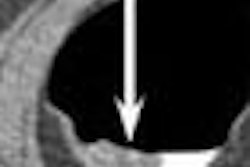VIENNA - Although they may have the best intentions, many European hospitals aren't following through on efforts to improve their operations, according to a presentation at this week's European Congress of Radiology (ECR).
Hospitals in Europe are under increasing pressure to economize and create efficiencies -- but to do so without compromising patient care or organizational operations. In fact, they are expected to improve their performance continually, according to Stefan Furtmüller, manager of Vienna-based Contrast Management-Consulting. But many facilities aren't fully implementing management techniques that could help them be more efficient and improve quality.
At a Saturday ECR symposium on hospital administration, Furtmüller discussed key findings from an Austrian study to define best practices and top priorities in hospital management. He also identified areas for improvement, adding that the conclusions could be applied in many European countries.
The study produced several notable findings regarding perceptions versus reality in the quality of European hospital management, shedding light on areas for improvement:
- Strategic management
- 93% of hospitals have a documented management strategy, but only 40% implement it comprehensively.
- 60% review their strategy, but only 26% apply measurement criteria.
- Control
- 90% use basic-cost accounting, but only 27% are able to specify real costs per service.
- One in two hospitals surveyed has a short-term planning service, but just one in four has systematic medium-term planning.
- Management reports are offered at every hospital, but only 13% are tailored to give the right information in the best way.
- Process/quality management
- 73% of hospitals have clearly defined responsibilities, but only 20% define or review these targets.
- Nearly three in four hospitals measure patient satisfaction, but only one in four assess the objective data.
- Across all hospitals surveyed, only 20% have a bespoke quality management system.
"Overall, 90% of hospital managers expect rising needs for change due to increasingly limited resources and the changing age and demand structure in the population," Furtmüller said. "The fields where action is required most urgently are demand for services, quality management, and continual improvement and growth."
His study asked successful hospital managers to define success, and they prioritized the results as shown:
- Patient satisfaction
- High-quality medical/clinical results
- Employee satisfaction
- Financial success
- Area-wide provision of services
- Motivation of employees
- A good image (public relations and reputation)
- High utilization of hospital capacity
With regard to which stakeholders were considered the most influential, survey results revealed hospital or physician group owners as the most prominent, followed by employees and patients. The next four positions (in descending order of influence) were politicians, internal lobbies, external lobbies, and media/public.
He concluded that creating synergies -- across medical care, service functions, integration with external suppliers, and management tools and techniques -- will enable hospitals to weather the economic storm.
"Approaches should aim to be systematic, comprehensive, and related clearly to the needs of stakeholders," Furtmüller said.
By Rob Skelding
AuntMinnie.com contributing writer
March 9, 2009
Related Reading
European hospitals must do more with less, March 8, 2009
Report: Hospitals hit by capital crunch, February 2, 2009
Survey forecasts drop in capital purchasing, December 18, 2008
Pay-for-performance has little effect on hospitals' quality of care, June 6, 2007
U.K. hospitals could close under NHS reforms, August 18, 2006
Copyright © 2009 AuntMinnie.com











